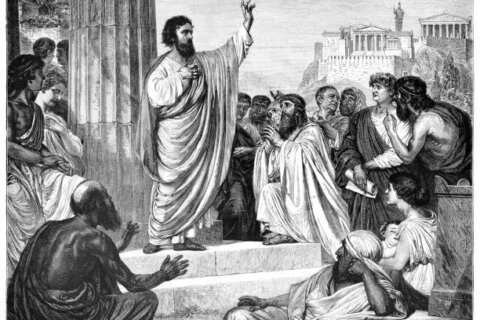THERE ARE MOMENTS IN LIFE when words fail to capture the depth of an experience; when the weight of a truth is felt more profoundly than can be articulated. Such is the power in dying–the secret to a productive, God-glorifying life that most professing Christians today know too little of.
Jesus Christ’s death was not a mere historical event. It was an act of divine love. A love so beyond comprehension that human language fails to find expression for it. Through His death, we have hope, forgiveness, and a new life–both in this world and in the world to come.
His death was not a passive resignation, but an active obedience. Even in Gethsemane, as He prayed, “Father, if thou be willing, remove this cup from me,” the final words of His prayer were: “Nevertheless, not my will, but thine, be done.” This was not weakness–it was the ultimate strength.
The religious leaders of His time were fearful of the power that might follow His death, insomuch that they stationed soldiers at His tomb. Yes, soldiers watching a dead body! They thought a stone and a sword could suppress the Divine. But no human power–no empire, no weapon, no scheme–could prevent the resurrection. When the angel descended and the earth shook, death itself was shattered.
God did not merely conquer death–He consumed it: “He will swallow up death in victory.” Isaiah 25:8. Christ’s death became the beginning of a new and glorious era. Through resurrection power, we, who were dead in trespasses and sin, are raised up through God’s work of salvation to sit with Him in heavenly places.
Let me be clear, salvation, the glorious church, and true unity would be impossible without Jesus giving up His life.
The very thought of physical death itself has changed, for no longer does it bear the same threat–that fearful enemy that sets an end to all that is good. Although connected with earthly grief and loss, death becomes the stepping stone to greater glory–an eternity with God. It is said that everyone wants to go to heaven, but not everyone is willing to die to get there.
To the Christian, death is a transition, leading to the marvel of a transfigured body; one that is immortal and able to enjoy glories we cannot experience here below. All the troubles, the battles, and the limitations of humanity will be gone forever.
It is a fundamental principle in Christianity that life springs forth from surrender, that strength emerges from brokenness, that victory is born in what appears to be defeat, and that dying to ourselves is the secret to a life of power.
It also sets a pattern for us. Out of love, we must die as well. We must follow the path of Christ and come to the end of ourselves–of our own will and way. In Christ, we are privileged to experience a life of fullness of joy, determination, boldness, and liberty awaiting on the other side. Dying to ourselves is the secret.
In John 12, Jesus speaks an unpopular truth: “Except a corn of wheat fall into the ground and die, it abideth alone: but if it die, it bringeth forth much fruit.” This is the divine principle woven into creation itself. Life comes through death. A caterpillar cannot become a butterfly without the dissolution of its former state. A seed cannot multiply without being buried.
Yet how often do we resist this law? We preach growth, courage, and fruitfulness–but we shy away from the prerequisite–death to self. We want revival without surrender, power without brokenness, harvest without planting, but a room full of wheat grains, no matter how good and wonderful the seed is, will never become a harvest unless each one falls into the ground and dies.
This death is not metaphorical. It is a crisis–a moment of utter abandonment where we relinquish control. Like Paul, we must come to the place of saying, “I have been crucified with Christ. It is no longer I who lives, but Christ who lives in me” (Gal. 2:20). This is not mere self-improvement, it is self-replacement.
Too often, we approach God with conditions: “I will serve you, but on my terms. I will follow you, but within my comfort zone.” Yet, true surrender is the handing over of the keys–not with a hidden agenda, but with radical trust. It is the end of our plans, our reputation, our fears.
Consider the disciples before Pentecost. They were hiding, paralyzed by fear. But after the upper room–after the fire fell–they became unstoppable. Why? Because they had died to themselves and God took over. The fear of mockery, persecution, even martyrdom no longer held power over them. Christ now lived through them.
This is the boldness we seek: not mustered from within, but birthed through a full surrender to God. When we cease to cling to our lives, we discover a life far greater.
The work these brethren did could only be accomplished because they rallied around the leadership of those obviously called by God to lead the church. Every selfish reason to go their own ways was rooted out from their hearts. They understood their place in time, their responsibility. They were taught by the example of Jesus dying for them (and Jesus’s exhortation to die for each other) and were determined to lay down their life for this high calling.
Romans 12:1 issues a startling invitation: “Present your bodies a living sacrifice, holy, acceptable unto God.” Just as the Romans were exhorted by the Apostle Paul to present their bodies, we must present ourselves a living sacrifice unto God in our time.
This is the pathway to resurrection power. Not merely striving, not self-help, but surrender. Not holding tighter, but letting go, or else each one is potentially his own biggest enemy. We need the hands of those whom God has appointed to teach us to die.
The great work of our time? It will only be done by this biblical principle. Everyone doing what seems right in his own eyes has never worked.
If you feel the weight of this truth, do not turn away. The death of self is not the end–it is a beautiful beginning of something powerful. As Jesus promised, “Whosoever will save his life shall lose it: and whosoever will lose his life for my sake shall find it.” Matthew 16:25.
May we have the courage to fall into the ground and die–and discover, at last, the life that is truly a more abundant life. The world is waiting on this!





